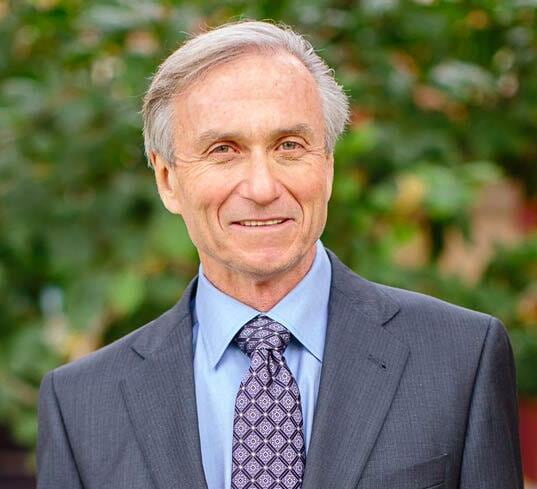Dr. McDougall had a stroke when he was 18. It was what propelled him in his medical career. In his words:
My medical education began in October of 1965, at age 18, when I suffered a massive stroke that left me completely paralyzed on the left side of my body for 2 weeks, and I remain noticeably physically weakened 44 years later. This was my first real contact with the businesses of medicine, and without this opportunity I would have never become a physician. I was raised in a lower middle class family in the suburbs of Detroit, Michigan. My parents worshipped medical doctors as if they were exceptional beings possessing near God-like qualities. I was an ordinary person, at best; therefore, I never even dreamed of aspiring to such heights — that is, before my fateful hospitalization.
My exalted view of doctors changed during my 2-week stay at Grace Hospital. As “a medical curiosity” — suffering a stroke at such a young age — I attracted some of Detroit’s finest medical specialists. After examining me, I asked each new doctor: “What caused my stroke?” “What are you going to do for me?” “How are you going to make me better?” “When can I go home?” The typical response was nonverbal; shaking their heads from side to side, they walked out of my room. I figured I could do that. After 2 weeks of the “best care” modern medicine had to offer, I left the hospital AMA (against medical advice) and returned to my undergraduate college studies at Michigan State University. Soon my learning was on a track straight to medical school. Looking back at my diet, I can give credit to eggs, double cheese pizzas, and hot dogs for my brain damage, and my good fortune.
He thought it was the food. He learned it was the food.
Below are a couple of his early newsletters. I stumbled upon them while looking up strokes and food.
The McDougall Newsletter. July/August 1989
https://www.drmcdougall.com/wp-content/uploads/2021/01/018.-July-August-Vol.-3-No.-4.pdf
Here’s the first paragraph of that newsletter:
Diet Is First Line Therapy
A no-cholesterol, low-fat diet will lower cholesterol an average of 12% or 28 mg/dl in 11 days. [See following newsletter for an explanation of this.] Many people can drop their cholesterol over 100 mg/dl in this short time. Cholesterol continues to decline rapidly for about 4 weeks with reports of 25% to 37% reduction in cholesterol levels by diet alone. Each 1% drop in cholesterol reduces your risk of dying from heart disease by 2% to 3% (JAMA 251:351 & 365, 1984) Thus, in 11 days your risk is down 24% to 36% and in month your risk can be 50% to 100% less than before your dietary change.
So, not only did he discover that cholesterol could be reduced drastically and in a short period of time with food, but that lower cholesterol, in turn, could reduce the risk of dying from heart disease.
When you fix circulatory issues, you fix many problems:
For more than decade I treated cholesterol problems and atherosclerosis-related diseases [coronary artery disease, angina, cerebral artery disease, TIAs (transient ischemic attack) and peripheral artery (leg) disease] with diet alone.
The McDougall Newsletter, September/October 1989
https://www.drmcdougall.com/wp-content/uploads/2021/01/019.-September-October-Vol.-3-No.-5.pdf
Under my care at St Helena Hospital and Health Center, 180 people followed a diet free of animal fat and cholesterol and gained an average cholesterol reduction of 28 mg/dl, or 12 percent, in 11 days. Many people exceed 100 mg/dl reduction in less time than most of us spend on summer vacation. Similar diets prescribed by other investigators have demonstrated 25 to 37 percent reduction in cholesterol in one month.
Imagine lowering your cholesterol 28 mg/dl in 11 days. Or 100 mg/dl in a month. Imagine eliminating your risk of a heart attack or stroke by eating rice, potatoes, oats, vegetables, and beans.
Here’s that reference he sited in the first newsletter for “Each 1% drop in cholesterol reduces your risk of dying from heart disease by 2% to 3%.”:
The Lipid Research Clinics Coronary Primary Prevention Trial Results, JAMA, 20 January 1984
The LRC-CPPT findings show that reducing total cholesterol by lowering LDL-C levels can diminish the incidence of CHD morbidity and mortality in men at high risk for CHD because of raised LDL-C levels. This clinical trial provides strong evidence for a causal role for these lipids in the pathogenesis of CHD.
What was striking to me: The people in the intervention group in this study were following a conventional cholesterol-lowering diet plus they took cholestyramine, a drug that binds bile acids (bile acids are made from cholesterol) in the intestine and carries them out with feces. And you know what? After 7 years they still only reduced their cholesterol to about 257 mg/dl (it was lower after the first year but crept back up). And they didn’t lose weight. Yet they still had reductions in heart attacks (compared to those who followed the diet but didn’t take cholestyramine) because they had lowered their cholesterol.
Imagine if they lowered their cholesterol to a more ideal 150 mg/dl:
Levels of 150 mg/dl or less (levels seldom seen in adults in the U.S.) are associated with no heart disease. … In other societies where people rarely if ever suffer from heart disease the usual adult cholesterol levels are 130 mg/dl to 160 mg/dl. People living in rural Japan, China, and Africa are gifted with an immunity to heart disease until they move to a wealthy society and change their diet.
Diet should be first line therapy. Dr. McDougall was right over 40 years ago. He’s still right. And so were his predecessors, like Kempner: Kempner’s 1940’s Rice Diet: Improved Kidney Function, Weight Loss, Lowered Blood Pressure

